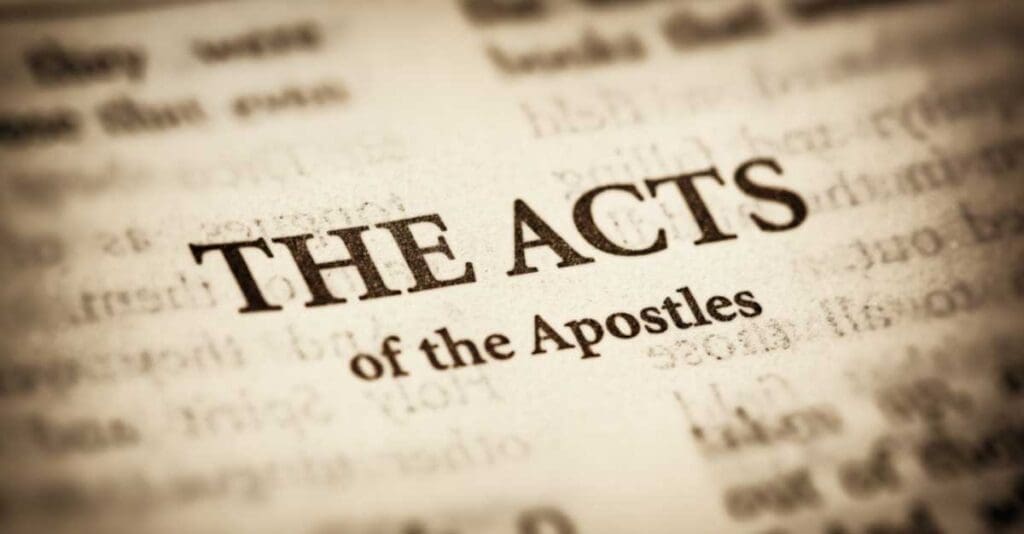Growing up, I was fascinated by fading pictures meticulously glued into some decades-old family albums. There I saw pictures of my mother and father before I was born. I saw some 90% of my extended family in Germany for the first time. My “Tante” Tessie and my “Onkle” Barney were the only relatives in the US. There are stories behind each picture!
Today I think sites like Facebook and Instagram have become the new family album! With the pace of technological change, who knows whether holograms will serve as vehicles of our connectedness with our past.
The Acts of the Apostles Are About Us – Today
Often, history can be boring. It seems little connected to our lives. That is unless it is our history!
I think of this as we spend the 50 days between Easter and Pentecost reliving the stories and struggles of our ancestors in faith. Our mother, the church, has preserved these memories from 2000 years ago. There are 28 short chapters in the Acts of Apostles. Each day during the Easter Season, there is at least one such story to savor and learn from.

A clash of mindsets
“We must keep things as they were!”
“We must adapt to a new way of looking at things!”
Sound like a description of what today we call polarization?
Polarization, often quite dangerous, is on full display at all levels of society and the Church today.
Differing mindsets or starting points.
We can look at mindsets as patterns of how people make sense of their world.
We each have our default positions facing life. Some people tend to be optimistic, while others are pessimistic. Some like clear instructions while others don’t.
Today we struggle with those who see the values in what they grew up with and those who see the shortcomings of previous generations. Both are convinced they have the complete truth.
A clash of mindsets – then and now
Over the next several weeks, the liturgy, drawing from the Acts of the Apostles, presents selected stories of ordinary people who coped with severe polarization some 2,000 years ago.
In our family history as Christians, we see two mindsets in tension.
One mindset within Judaism focused on the challenges of keeping values as they were codified into 612 rules by scholars of the law (with maybe some modifications around the edges).
Another focused on the challenges of a changing world. Both represented legitimate values.
But Jesus overturned both their religious and/or cultural expectations. He announced and mirrored a merciful God. For different reasons, this was unacceptable and incomprehensible to the cultures of the time. Jesus held on to the best of the past… but pointed us in a more profound understanding of God... a God willing to die to show the extent of love.
( See an earlier Mindwalk on culture wars in the early church for more perspective)
We have a choice!
There are two ways of reading the Acts of Apostles. We can read the stories as interesting history detached from our lives. Or we can read the stories seeing parallels with today. We can learn from both the insights and mistakes of our ancestors in faith. I have been amazed at the underlying similarities.
Of course, there is a subsequent choice. Will we have the courage to accept a radical vision of a God whose gift we can never earn, only accept?
A suggestion
As you read/hear any story in our family history, ask yourself if you can see that story being played out in our lives.
(Of course, not everyone has the luxury, or the inclination, to celebrate Eucharist daily. However, daily snippets from the Acts of the Apostles are available on our tablets and mobile phones.)
Originally posted on Vincentian Mindwalk





0 Comments